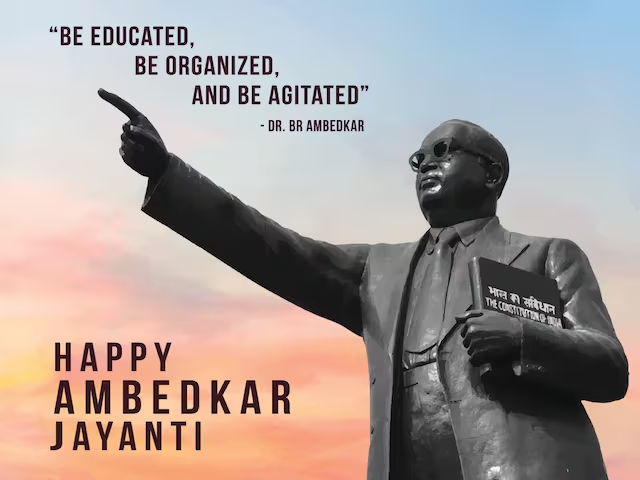Dr. Bhimrao Ramji Ambedkar (1891-1956) was a towering figure in modern Indian history. A jurist, economist, social reformer, and political leader. Dr. B. R. Ambedkar’s life and work were dedicated to the emancipation of India’s downtrodden communities, particularly the Dalits (formerly known as untouchables).
1. Dr. B. R. Ambedkar‘s Early Life and Education (1891-1915):
- Born into a Dalit Mahar family, Ambedkar faced social stigma and discrimination from a young age.
- Despite these challenges, he excelled in his studies, benefitting from the affirmative action policies for disadvantaged castes implemented by the Maharajah of Baroda.
- He obtained scholarships to pursue higher education in Bombay (now Mumbai) and later in the United States and England, earning a doctorate in economics from Columbia University.
2. Fighting Caste Discrimination (1915-1940):
- Ambedkar’s personal experiences with caste discrimination fueled his lifelong struggle for social reform.
- He actively campaigned for the rights of Dalits, advocating for better living conditions, access to education and public services, and separate electorates for Dalits within the colonial political system.
- He established organizations like the Bahishkrit Hitakarini Sabha (Society for the Welfare of the Outcastes) to promote social justice and uplift Dalits.
- His writings, such as “Annihilation of Caste” (1936), offered a scathing critique of the Hindu caste system and advocated for its abolition.
3. Political Activism and the Poona Pact (1930-1935):
- Ambedkar actively participated in the Indian independence movement, but his views on caste often clashed with mainstream nationalist leaders.
- He opposed the idea of a united Hindu electorate, fearing it would marginalize Dalit interests.
- This led to a famous confrontation with Mahatma Gandhi at the Second Round Table Conference in London in 1932. Ambedkar demanded separate electorates for Dalits, while Gandhi opposed it on the grounds of national unity.
- A compromise, known as the Poona Pact (1935), was finally reached, granting Dalits reserved seats within the general electorate.
4. Dr. B. R. Ambedkar–Architect of the Indian Constitution (1940-1950):
- Ambedkar played a pivotal role in drafting India’s Constitution.
- He was appointed Chairman of the Drafting Committee and is considered the “Father of the Indian Constitution.”
- The Constitution, under Ambedkar’s guidance, enshrined fundamental rights, including equality for all citizens, and abolished untouchability.
- He also championed the cause of social and economic justice within the framework of the Constitution.
5. Independent India and Conversion to Buddhism (1947-1956):
- Ambedkar served as India’s first Law Minister in the independent government (1947-1951).
- However, he remained disillusioned with the slow pace of social change and the continued prevalence of caste discrimination.
- In a historic move, Ambedkar, along with hundreds of thousands of Dalits, converted to Buddhism in 1956, renouncing Hinduism. He saw Buddhism as a religion that offered equality and rejected caste hierarchies.
6. Dr. B. R. Ambedkar’sLegacy and Impact:
- Dr. B. R. Ambedkar’s legacy is multifaceted.
- He is revered as a champion of social justice and a fighter for the rights of Dalits.
- The Indian Constitution, which guarantees equality and fundamental rights, is a testament to his vision.
- His critique of caste continues to be relevant in contemporary India.
- Ambedkar’s conversion to Buddhism inspired the Dalit Buddhist movement, which continues to advocate for social and religious equality.
7. Criticisms and Debates:
- Ambedkar’s views on caste and social reform have been subject to debate and criticism.
- Some scholars argue that his focus on separate electorates for Dalits ultimately weakened their integration into mainstream society.
- Others critique his conversion to Buddhism, questioning if it offered a solution to caste issues within Indian society.
8. Conclusion:
- Dr. B. R. Ambedkar remains a controversial yet iconic figure in Indian history.
- His life and work continue to inspire social reformers and activists fighting for equality and justice in India and beyond.
- Understanding Ambedkar’s multifaceted contributions is crucial for comprehending the complexities of caste, social change, and the ongoing struggle for a truly egalitarian India.




